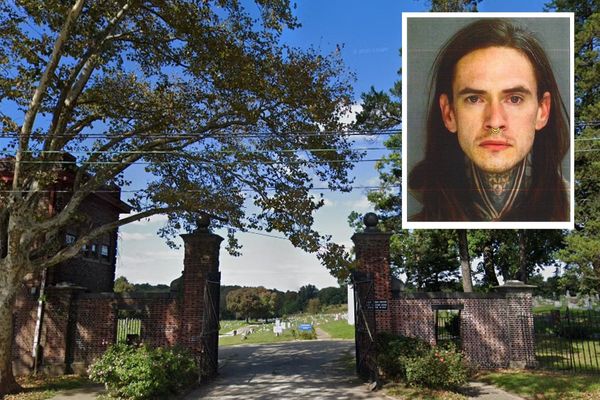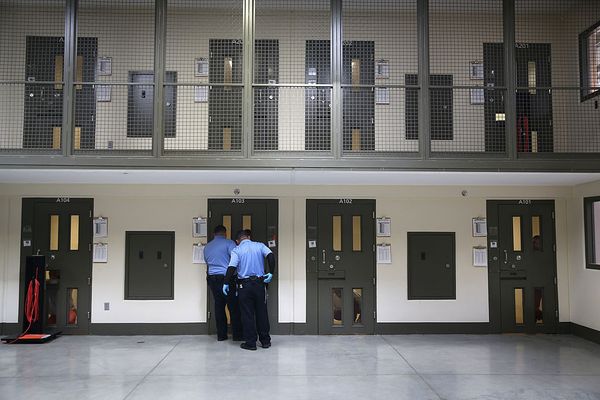
SYDNEY—Laura, a pseudonym for a Chinese undergraduate at an Australian university, says there’s one simple way to gauge whether a fellow student is loyal to the Chinese Communist Party, or CCP.
“I usually ‘accidentally’ mention Taiwan as a country,” she said. “If they don’t argue with me, I would push it further to mention brave people such as Hong Kongers. If it works, I would know that the person is one of our fellows.”
Laura is one of many pro-democracy students in the Chinese diaspora who must exercise caution around their Chinese peers, worried that nationalistic students will harass or isolate them—or worse, report them to authorities back home. Laura fears that if her identity is revealed, her family will be “arrested and tortured in jail.”
She and her friends speak out against the CCP on their university campus by hanging posters, often finding them removed or vandalized the next day. On a poster reading, “You cannot tear down an idea, ideas are bulletproof,” one pro-CCP student wrote, “But I can tear your mouth off,” a thinly veiled threat intended to intimidate those who speak out against Chinese President Xi Jinping and his regime.
While Laura and her friends use loaded questions and speak in code, others, such as Aaron, an undergraduate at a Sydney university, rely on disguises to protect themselves.
In December, Aaron attended a candlelight vigil in Sydney for the victims of a deadly fire in the Uyghur-majority neighborhood of Urumqi, Xinjiang. Pro-democracy demonstrators at the event claimed a “pro-CCP nationalist” threw eggs at them, while another threw stones.
While Aaron uses a pseudonym on social media to conceal his identity online, at this protest, he wore an attention-grabbing Winnie-the-Pooh costume. Because of the character’s resemblance to Xi, Winnie—like blank pieces of paper—has become a global symbol of dissent toward the CCP. Underneath the cheery mask is a man afraid that his actions could be dangerous for him and his family.
“My whole family is in China,” Aaron told Foreign Policy. “I’m worried for their safety. I’m worried that once the CCP identifies me, they’ll put me in prison.”
In Australian universities, protecting Chinese students and their political speech from harassment is no small challenge. This is partly due to the unique role of Chinese students in the Australian education system. Education is one of Australia’s top exports, and the industry depends on Chinese students, who make up a significant portion of the education export sector and pay up to 400 percent more than domestic students. In 2019, Chinese students alone brought in roughly $8 billion ($12 billion AUD) in tuition fees to Australian universities.

Middle-class families from China’s major business cities such as Shanghai see studying overseas as an opportunity to give their children a competitive edge in the increasingly global job market. Chinese students come to Australia to study because of the quality of education and relative cost of living and tuition—especially compared to American universities. Many students believe that an Australian degree will help their employability and the financial and social status of their families back home.
A 2021 Human Rights Watch report documented the uniquely pernicious reach of the CCP at Australian universities. Sophie McNeill, the author of the report, told Foreign Policy that she has observed “a clear correlation between this over-reliance on these full fee-paying students and universities turning a blind eye to these issues surrounding the academic freedom of Chinese students and staff working on China.” The report observed that this over-reliance has created problems not only for censorship and self-censorship in the classroom but also for peer-led harassment and intimidation of pro-democracy students.
The report noted that Chinese students studying abroad are a “new focus” for the party, who may “influence and ‘call on’” students to promote its causes and positions. Despite residing overseas, these informal diaspora networks can make it difficult for Chinese students at Australian universities to escape the long arm of the CCP.
The Chinese Students and Scholars Association (CSSA), the main Chinese student organization in Australia, has been linked to the Chinese embassy and receives funding from the embassy as well. (FP contacted two CSSA sub-bodies, but they declined to comment.) Students with pro-democracy views are oftentimes too scared to be associated with the CSSA since it functions as a powerful information network for authorities back on the mainland.
“They’re kind of CCP agents. They help the Chinese government watch over other students. I think it’s because most of them think it’s their duty to do that.”
All four students interviewed for this piece identified the lack of an independent university association free of links to the Chinese government as a major restriction on their sense of freedom. They said the added layer of interference stopped them from enjoying extracurricular activities openly and from meeting other Chinese students without censoring themselves.
“They’re kind of CCP agents,” one student told Foreign Policy. “They help the Chinese government watch over other students. I think it’s because most of them think it’s their duty to do that.”
This means that despite residing in a Western, liberal democracy, Chinese students studying in Australia often find themselves in a precarious position in which they must balance their political and academic freedoms against concerns for their families and their futures.
Some universities, such as the University of New South Wales (UNSW), have made efforts to combat these pressures and protect the rights of their pro-democracy students. The UNSW recently launched a new framework to counter foreign interference on its campus, which includes a portal for anonymously reporting harassment—particularly for incidents linked to foreign governments.
While university officials have assured students and staff that reports would be listened to and acted on, others, such as Kevin Carrico, a professor in Chinese studies at Monash University in Melbourne, believe the system could be “abused” by pro-CCP students who may use false reports to target their dissenting peers.
Pro-democracy protests against the CCP have ramped up in Australia over the past year, fighting against zero-COVID measures, but also more broadly for dignity against the CCP’s state control and surveillance tactics. By participating, many Chinese students have made their political views more visible than ever before. Even covert participation at these events is risky. But for those who speak out openly, the reality is even bleaker.
After first maintaining an anonymous presence online and wearing masks to disguise herself at in-person demonstrations, in 2020, Horror Zoo, an alias used by a now-prominent feminist, LGBTQ activist, and graduate studying in Sydney, revealed her face on the 31st anniversary of the Tiananmen Square massacre, an event that’s still censored in China. She says she was inspired to do so by “tank man” from the iconic photo of a Chinese student standing up to a column of People’s Liberation Army tanks during the massacre. Since then, she has organized multiple protests in Sydney fighting for freedom of expression and against zero-COVID measures, which is a legal and protected act of speech under Australian law. After revealing her face, however, the CCP summoned her family members in China and forced her father to sign documents cutting off contact with his daughter.

“They took my family to the police station in the middle of the night and didn’t allow my dad to go home,” she told Foreign Policy. “They forced him to sign a letter saying he shouldn’t say anything to me anymore. Otherwise, my family members will be sentenced to 10 years in prison, and they will have their pensions canceled.”
Zoo said Chinese authorities forcibly installed what her mother believes is a surveillance device, checking to see if she returns to China or if her family contacts her.
“My mom told me that two men came to my house the day after I released a video to the media,” she said. “Two policemen came to my house and said they needed to replace the TV box. But my mom said the internet was very good and they didn’t need to replace it. When they did it anyway, my mom was concerned.
“My mom went to the TV company to check if the internet needed to be upgraded or if there were any issues, but they said they never sent anyone to my home to do this.”
Zoo said there’s “absolutely no chance” she will ever return to China and aims to study for a PhD in Australia in the future.

The further centralization of Xi’s power at the 20th National Congress of the Chinese Communist Party has made many pro-democracy students concerned about their futures in China. Laura said fellow students who had returned to China have been “caught by the police and still aren’t free.”
“They are likely to be forced to support the CCP and sign a ‘reflection letter’ to ensure that if they attend an anti-CCP protest again, they will be arrested and put in jail just like other political criminals,” she said.
Even knowing these risks, the price of silence and anonymity is too high for many activists who want to use their freedoms abroad to stand up to Xi and the CCP.
Aaron believes that Chinese politics are becoming similar to the “totalitarianism seen in North Korea,” and the climate of censorship and suspicion is approaching that of the former Soviet Union.
He plans to take off the Winnie-the-Pooh mask and reveal his face at protests at some point in the future because “someone needs to stand out, even in these decentralized events.”
“I don’t think the revolution will totally succeed, but it’s proved the CCP could take a step back as they’ve ended some lockdowns now,” he said. “I think it will lead to more people fighting for the future.”







